Simple, elegant and wholly appropriate, the design for Vestiaire Collective’s new Paris Showroom is brand realisation writ large.

May 26th, 2022
Designed with sustainability in mind: locally-sourced materials and a low-carbon impact are innately delivered. Employee wellbeing is also highly considered with a 50:50 balance between office and remote working. The jewel in the crown however, is the curation of iconic design pieces, artwork and creative collaborations that have turned this workspace into an inspiring place of cultural exploration.
Specialising in vintage haute couture and retro chic, Vestiaire Collective is the leading global platform (app) for pre-loved luxury fashion. With a rare and highly desirable inventory of three million designer items, Vestiaire provides its community – those who live for fashion and take care of it for life – with inspiration, tools and features to lead the change to a sustainable fashion future.
Launched in Paris in 2009, Vestiaire Collective is a Certified B Corporation (B Corps, are companies verified by B Lab to meet high standards of social and environmental performance, transparency, and accountability). It has offices in Paris, New York, Los Angeles, Hong Kong, Seoul, Singapore and a tech hub in Berlin.

It was therefore fitting that Vestiaire choose partners appropriate to its own sustainability ethos. French architecture firm Les Bâtisseurs, second-hand design platform Selency and plant company La Grande Serre were all selected for their commitment to the environment.
Transforming a quintessential Parisian building (19th century Haussmann) in the city centre, the space was completely redesigned to follow a rigorous low environmental impact approach.
“Transforming a classic ‘Haussmannian’ building into a eco-designed, inclusive and disruptive new space was a challenge, but the result exceeded our expectations,” say Vestiaire Collective co-founder Fanny Moizant, president, and Sophie Hersan, fashion director.
Related: Bean Buro’s design for this retail academy in Hong Kong
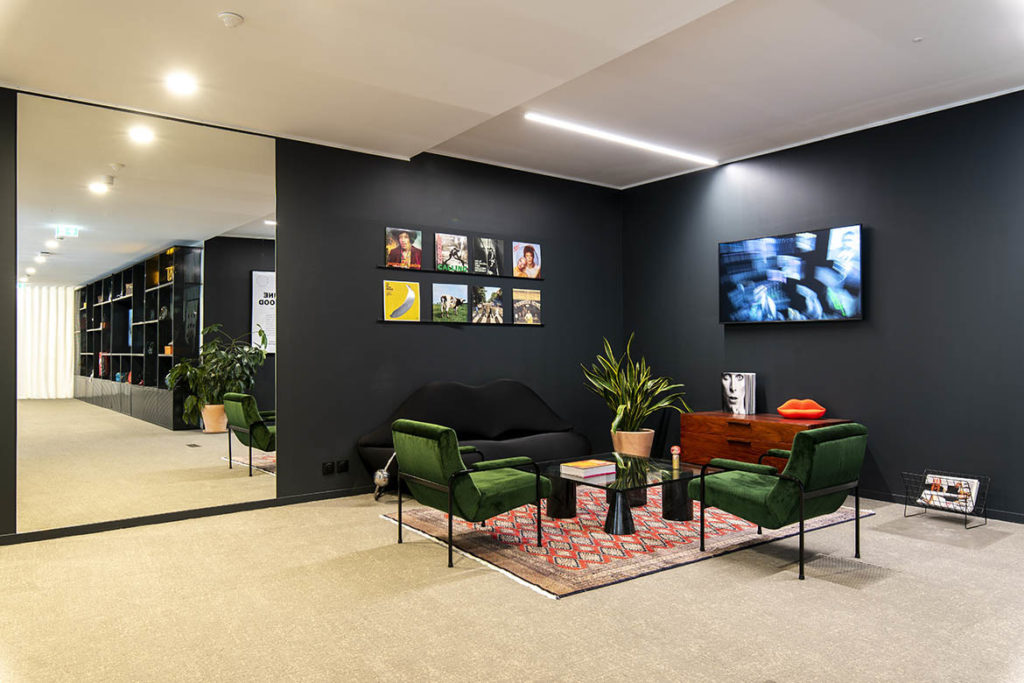
All materials and furniture were selected following strict environmental criteria and locally sourced. The combined effect of local sourcing, sustainable materials, French craftsmanship, and over 60 per cent recycled, upcycled and second-hand furniture, has resulted in three times less CO2 than a standard office renovation (as calculated by Observatoire de L’Immobilier Durable).
Additionally, French start-up Back Market, a company specialising in reconditioned electronic appliances, has supplied the project with refurbished kitchen appliances.
By 2021 the Parisian team had grown to 650 employees, many of whom preferred to work from home. As such, with employees included in the ideation, the renovation delivers a 50:50 split between office and remote working in a flexible-office approach designed to drive cross-functional working and interaction.
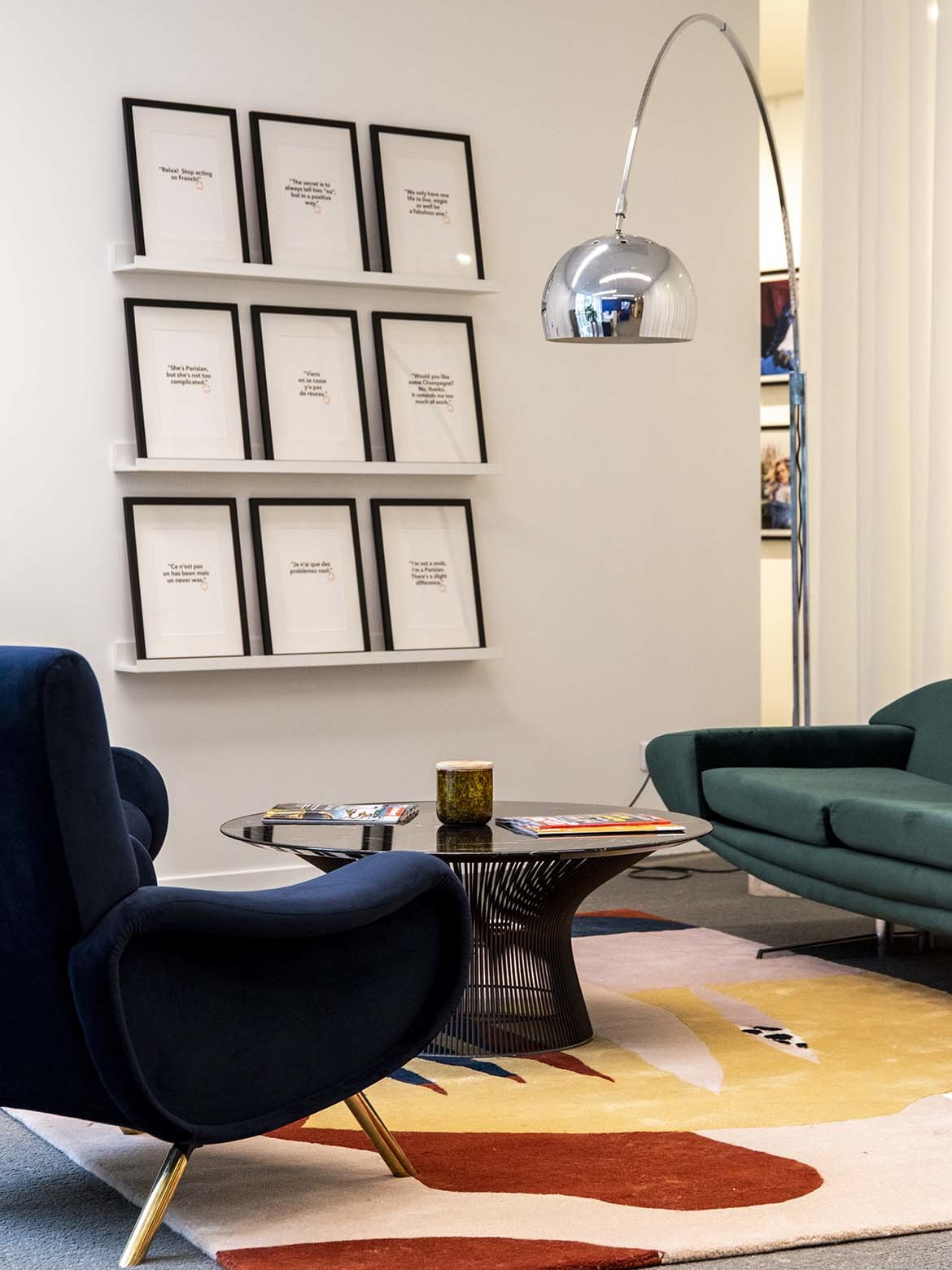
Conscious of living in an era where the relationship to the workplace has been greatly transformed, over 50 per cent of the total headquarters surface has been dedicated to social and collaborative spaces with high levels of technology. By doing so, the company acknowledges both the digital acceleration – employees can choose to work anywhere there is an Internet connection – and the current need for an office environment that promotes and facilitates personal wellbeing.
“With the creation of the new Vestiaire Collective headquarters, Les Bâtisseurs has integrated environmental requirements applied to wellbeing in the workplace in order to design the offices of tomorrow,” say Eloi Coudevylle and Olivier Tabard of Les Bâtisseurs.
Dedicated parenting and prayer rooms form part of the amenity: “With the shift towards remote working, it was paramount that the new office made each and every employee feel at home. We are taking concrete steps towards a more holistic approach to sustainability and hope our decision will pave the way for other fashion companies, in order to build together the future of fashion,” say Moizant and Hersan.

Mirroring the company’s eye for curation, and a partnership with the second-hand design platform, Selency, the workspace boasts a selection of iconic design. Pieces by Michel Ducaroy, Pierre Paulin, Charlotte Perriand and Patrick Seguin, provide the primary focus, while traditional office desks are replaced with sleek Vitra reeditions of timeless Eames and Bouroullec designs. The pairing effectively returns understated elegance to the workplace.
Overlaying the whole, a team of creative collaborators were invited to transform the office into a place of cultural exploration. Bringing their personal touch: French graffiti artist Louis Bottero decorated the second floor with a large-scale mural, while French origamist Junior Fritz Jacquet created handmade lighting appliances using recycled materials. Temporary exhibitions, conferences, workshops and events will also be programmed throughout the year.
The result is a headquarters that is true to brand ethos, highly attractive to staff interaction and agile enough to change as fast as the fashion industry dictates.
Vestiaire Collective
vestiairecollective.com
Les Bâtisseurs
lesbatisseurs.paris
Photography
Victor Grandgeorge

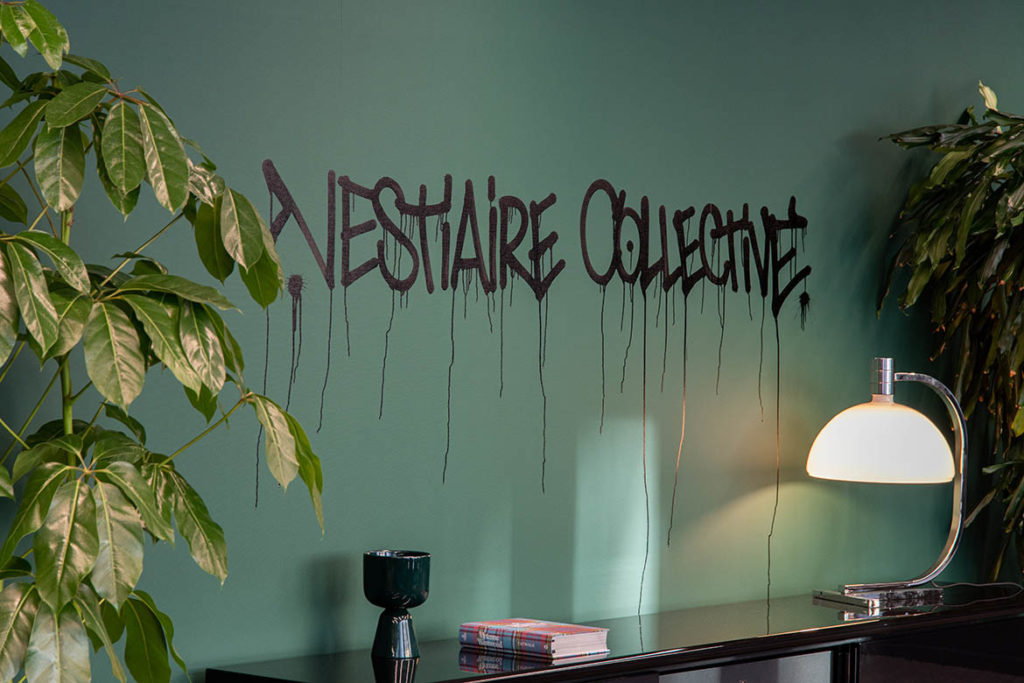
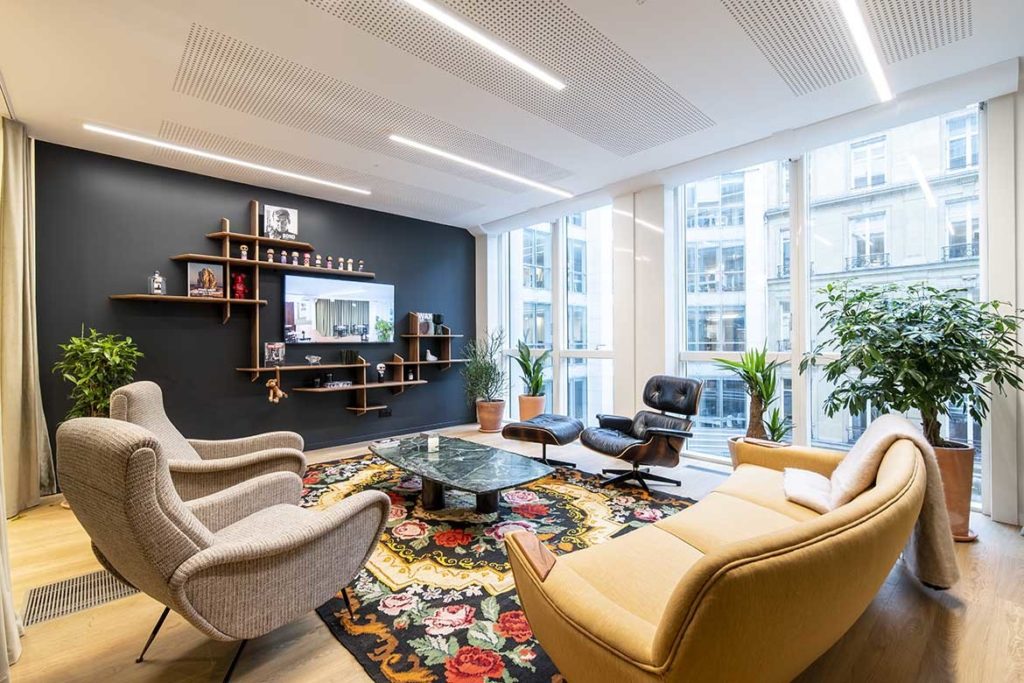
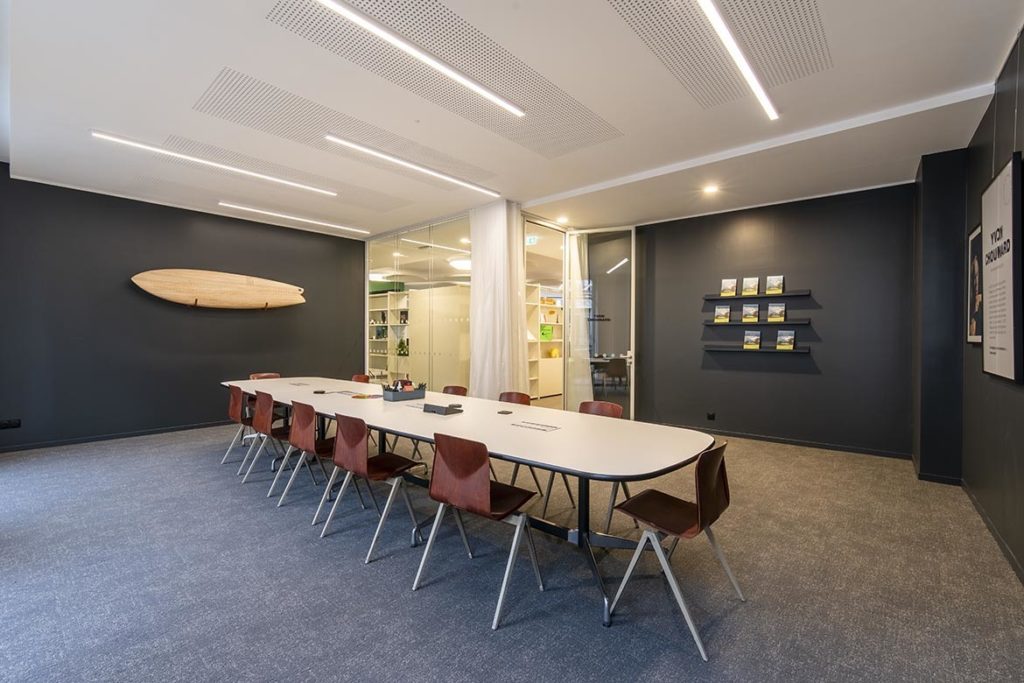


We think you might like this article about The Bureau’s workday luxury by Kingsmede.
INDESIGN is on instagram
Follow @indesignlive
A searchable and comprehensive guide for specifying leading products and their suppliers
Keep up to date with the latest and greatest from our industry BFF's!

In this candid interview, the culinary mastermind behind Singapore’s Nouri and Appetite talks about food as an act of human connection that transcends borders and accolades, the crucial role of technology in preserving its unifying power, and finding a kindred spirit in Gaggenau’s reverence for tradition and relentless pursuit of innovation.

To honour Chef James Won’s appointment as Gaggenau’s first Malaysian Culinary Partner, we asked the gastronomic luminaire about parallels between Gaggenau’s ethos and his own practice, his multidimensional vision of Modern Malaysian – and how his early experiences of KFC’s accessible, bold flavours influenced his concept of fine dining.

Dreamily poetic in his approach to any project, Joe Cheng, director of CCD and UN Cultural Ambassador, has adopted the Fenghuang as the thematic touchstone for Shangri-La Nanshan.

We spoke to the Belgian architect about his work ‘Optô,’ which was on display as part of the exhibition ‘Poetica’ by WonderGlass at Milan Design Week 2025.
The internet never sleeps! Here's the stuff you might have missed

We spoke to the Belgian architect about his work ‘Optô,’ which was on display as part of the exhibition ‘Poetica’ by WonderGlass at Milan Design Week 2025.

Kerrie Shepherd is a Kamilaroi woman and Principal of Connecting with Country at Aboriginal-owned urban design company Yerrabingin, drawing on extensive lived experience with First Nations communities.